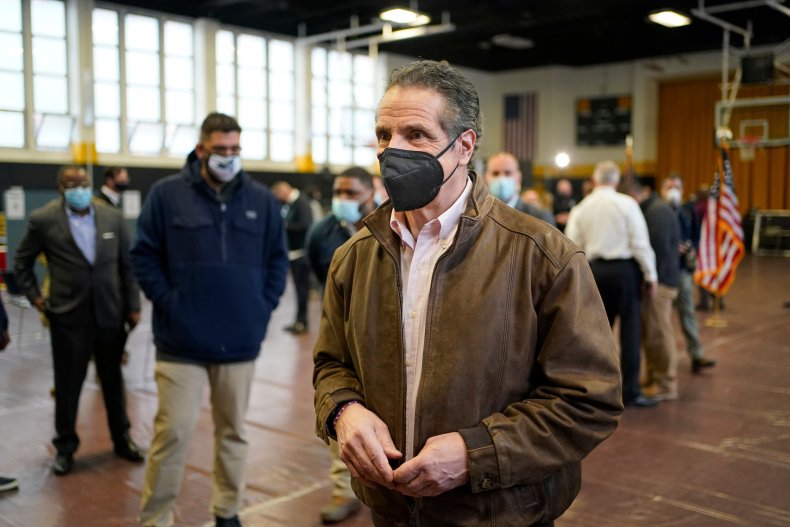State Legislature to Revoke Andrew Cuomo's Pandemic Powers, Limiting Executive Order Abilities
The New York State Legislature is set to pass legislation that will revoke the expanded emergency powers Governor Andrew Cuomo gained at the start of the coronavirus pandemic ahead of those powers' scheduled expiration next month.
The Tuesday announcement by state Senate Majority Leader Andrea Stewart-Cousins and Assembly Speaker Carl Heastie, both Democrats, came after weeks of controversy surrounding the state's reporting of COVID-19 deaths in nursing homes. The controversy inspired lawmakers on both sides of the aisle to declare the time had come to pare back Cuomo's expanded powers before their official lapse on April 30.
In a news release announcing their agreement on the legislation, Stewart-Cousins and Heastie said the powers they granted Cuomo last March "served their purpose" at a time when little was known about COVID-19, which was still new in the U.S. at the time. One year later, three COVID-19 vaccines have received emergency use approval from the Food and Drug Administration and are being distributed throughout the country.
"A year into the pandemic, and as New Yorkers receive the vaccine, the temporary emergency powers have served their purpose—it is time for them to be repealed," Heastie said.

Stewart-Cousins also compared the early days of the pandemic to the progress made possible by enhanced understanding of the virus and access to vaccines.
"I think everyone understands where we were back in March and where we are now. We certainly see the need for a quick response but also want to move toward a system of increased oversight, and review," Stewart-Cousins said.
Stewart-Cousins and Heastie wrote that approving a temporary expansion of Cuomo's emergency powers last March was deemed necessary to "allow a nimble response" to the pandemic in New York. With those powers, Cuomo had greater latitude for issuing executive orders as part of his administration's pandemic response.
Once the legislation Stewart-Cousins and Heastie proposed becomes law, those expanded emergency powers will come to an immediate end, though the legislators said some executive orders related to the state's pandemic response that are "critical to public health" will remain in effect for 30 more days. Cuomo will be able to extend pandemic-related executive orders so long as the state legislature is alerted and invited to weigh in on those decisions, Stewart-Cousins and Heastie said.
"The governor will be required to notify relevant Senate and Assembly committee chairs as well as the temporary president of the Senate and the speaker of the Assembly with the need for the extension or modification, and the threat to public health and safety, and provide an opportunity to comment," the chamber leaders wrote of potential executive order extensions.
The Cuomo administration will be instructed to post current and recently modified directives on its website 15 days after the legislation is enacted. The website will be required to be updated every 30 days to display the administration's responses to questions and comments posed by relevant officials, the state legislators wrote.
Under the new legislation, the state legislature will also have the power to use a joint resolution to repeal a state of emergency, though outbreaks like the COVID-19 pandemic will remain applicable for future state of emergency directives.
"The public deserves to have checks and balances," Stewart-Cousins said in the release. "Our proposal would create a system with increased input while at the same time ensuring New Yorkers continue to be protected."
Newsweek reached out to Cuomo's office for comment but did not receive a response in time for publication.

